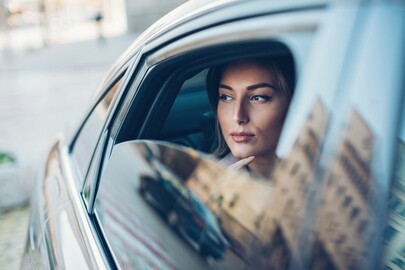By SARAH RAMIREZ – Copyright: Luxury Daily
Global millionaires are primed to increase their spending on travel, focusing on wellness and purpose-driven trips.
According to new findings from Agility Research & Strategy, most millionaires are increasingly optimistic about their economic outlooks. As a result, they are likely to devote more of their wallet share to luxury and travel.
The findings are based on insights from Agility’s TrendLens tracker for Q1 2022.
Travel takes off
While wellness travel was already growing in popularity in the late 2010s, the COVID-19 pandemic accelerated the trend. Health and wellness can be a key deciding factor for travelers deciding between different destinations or properties.
Millionaires are also gravitating towards purpose-driven travel. Not only can this influence travelers’ choice of destination or property, but it can also shape itineraries.
Research from YouGov shows hospitality brands are being called to collect and observe sentiment data to determine what motivates their audiences most and how they are or are not meeting their needs. Travel organizations also need to create a value proposition, which will enable them to determine what consumers value most and how to obtain their loyalty (see story).
Solo travel is giving way to family trips and “friend-cations” as travelers look to reconnect with their loved ones. With their large budgets, millionaires also can rent out boutique properties for privacy and extended family stays.
Younger millionaires are taking advantage of work-from-home policies and embracing digital nomad lifestyles. “Bleisure” travel that combines business and leisure trips will become increasingly acceptable, according to Agility.
For instance, hospitality group Four Seasons Hotels and Resorts launched a program called Work at Leisure. Guests who are working can request various items that make it more comfortable for them to work from their room or anywhere around a Four Seasons property (see story).
Brands such as Auberge Hotel Collection and Mandarin Oriental also introduced remote long-term stay packages to accommodate working individuals looking for a vacation while still navigating the pandemic. Some packages even include tutoring for children who are attending school remotely (see story).
Finally, sustainability is shaping travel decisions as wealthier consumers feel the urgency of climate change.
The sentiment is becoming global, as Chinese and other Asian millionaires, particularly millennials, are accounting for sustainability when making travel plans. Sustainability in travel is often determined by evaluating brands’ carbon footprint and other environmental initiatives.
Luxury shopping link
Although the global economic outlook remains uncertain as countries battle inflation while recovering from the pandemic, both leisure and business travel are expected to see improvement this year.
International travel had been seeing record levels before the hospitality industry was hammered by COVID-19. Domestic trips have kept the sector afloat and is forecast to remain the primary source of travel in China for 2022 as most other countries lift their remaining pandemic restrictions for visitors.
For millionaires able to travel internationally, top destinations include France, Australia, Italy and the U.S.
Tourism is also closely linked to luxury retail spending. Forty percent of U.S. and Japanese millionaires plan to continue to buy luxury domestically, however, according to Agility.
As most of the world has slowly opened up after COVID-19’s unwelcome appearance, China’s zero-tolerance pandemic policy remains in place.
Earlier this month, the Dragon Boat Festival offered hope for China’s battered travel sector
Between June 3 and 5, there were 79.6 million domestic tourism trips across the country, generating $3.88 billion – 25.82 billion yuan – in revenue during the three-day holiday, according to the Ministry of Culture and Tourism.
Although this year’s tourism figures were better than the same period in 2020, they still lagged behind 2021.
Geographically, consumption in areas that have lifted lockdowns, such as Beijing and Shanghai, saw steady rebound. In particular, Beijing recorded a 6.3 percent increase in retail sales compared to the same period last year (see story).
Copyright: Luxury Daily



